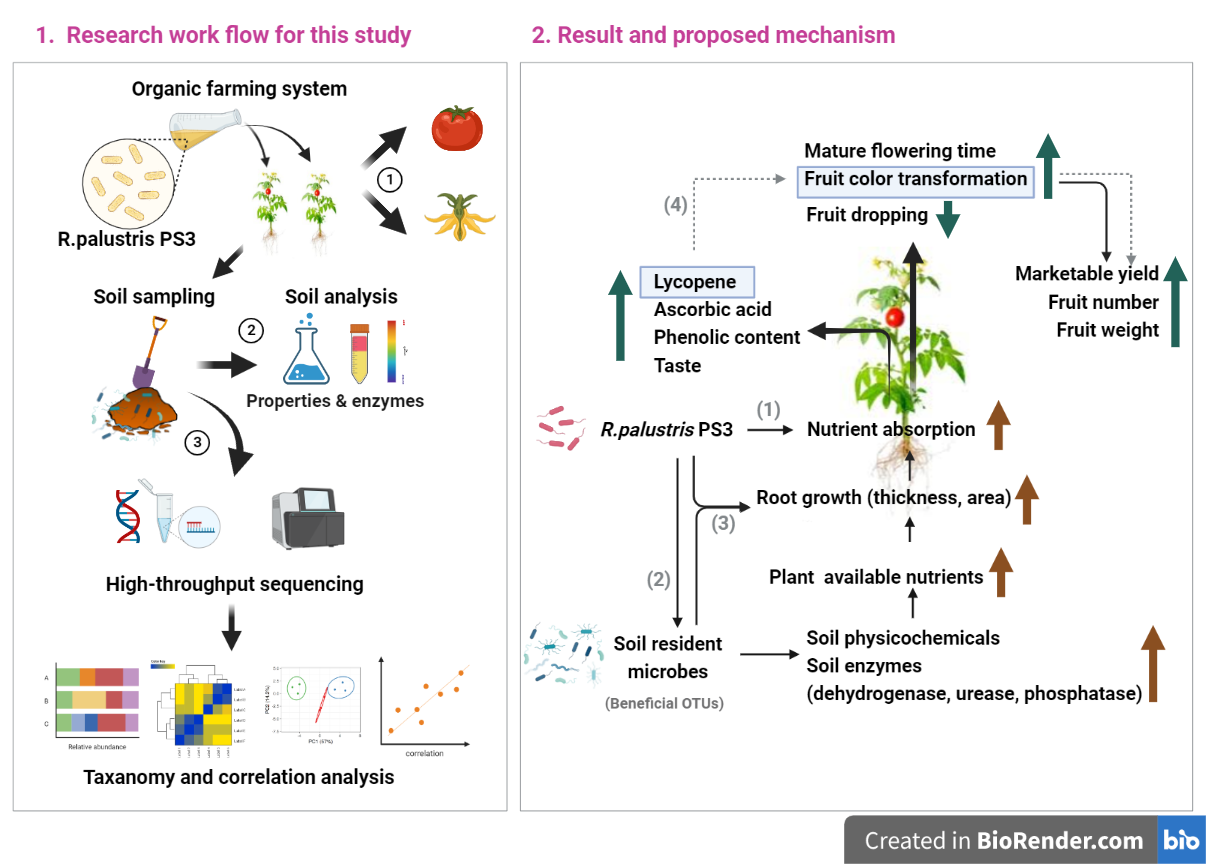[Chih-Horng Kuo] Effects of a plant growth-promoting rhizobacterium on tomato production and soil microbiota in organic farming
POST:
Figure legend. The research work flow, result, and proposed mechanism of this study on the effect of a plant growth-promoting rhizobacterium Rhodopseudomonas palustris PS3 on tomato production under organic farming system.
Plant growth-promoting rhizobacteria (PGPR) are microorganisms that promote plant health and play a critical role in sustainable agriculture. As a PGPR, Rhodopseudomonas palustris strain PS3, when applied as a microbial inoculant, exhibited beneficial effects on a variety of crops. In this new study, the research team investigated the effects of PS3 on tomato growth, soil properties, and soil microbiota composition in an organic field. The results demonstrated that PS3 inoculation significantly improved the yield of marketable tomato fruit (37%) and the postharvest quality (e.g., sweetness, taste, vitamin C, total phenolic compounds, and lycopene). Additionally, soil nutrient availability (35–56%) and enzymatic activities (13–62%) also increased. Furthermore, several bacterial genera known to be associated with nutrient cycling had higher relative abundances, and these findings from field experiments could be validated in pot experiments. Taken together, this study provided novel knowledge regarding this PGPR, and further demonstrated the value of PGPR in sustainable agriculture.
This study was published in Frontiers in Microbiology. The research team was led by Prof. Chi-Te Liu (Institute of Biotechnology, National Taiwan University) and Dr. Chih-Horng Kuo (Institute of Plant and Microbial Biology, Academia Sinica), and involved collaborators from the Department of Agronomy and the Department of Agricultural Chemistry at the National Taiwan University.
Lee SK, Chiang MS, Hseu ZY, Kuo CH*, Liu CT* (2022) A photosynthetic bacterial inoculant exerts beneficial effects on the yield and quality of tomato and affects bacterial community structure in an organic field. Frontiers in Microbiology 13:959080.